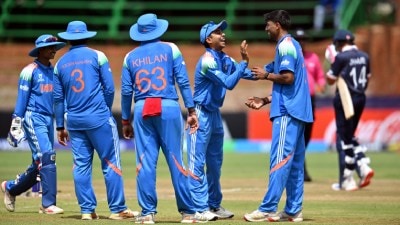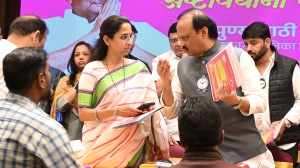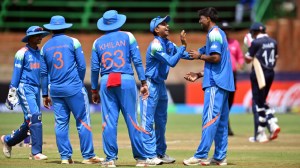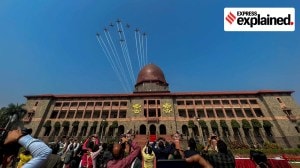Lessons unlearned
W.B. Yeats' comment that the quot;best lack conviction whilst the worst are full of passionate intensityquot; seems to fit the pre-poll po...

W.B. Yeats8217; comment that the quot;best lack conviction whilst the worst are full of passionate intensityquot; seems to fit the pre-poll political scene. The first lists of candidates released by most political parties indicate that their resolve to keep criminals out of politics, so vociferously voiced at the special golden-jubilee session of Parliament, has evaporated into thin air. Former bandit queen Phoolan Devi will again try to enter the Lok Sabha on a Samajwadi Party ticket. The BJP, which had recently given ministerial berths to over a dozen defector-politicians facing serious criminal charges in UP, has decided to field ex-TADA detainee and listed mafia don Brij Bhushan Singh once again. In Andhra Pradesh, a dreaded criminal-politician such as Srisailam Yadav is being welcomed with great fanfare by Telugu Desam Chief Minister Chandrababu Naidu himself because he has defected from the Congress.
The writing on the wall is clear. Like corruption, criminalisation is no longer considered a serious issue in Indian politics. Neither the lofty sentiments aired by MPs nor President K.R. Narayanan8217;s advice has made any impact. Political parties do not seem to be deterred by the no-nonsense attitude of the Election Commission on this issue. The influence of muscle power in Indian politics has long been a fact of life. Allegations that politicians used outlaws to further their electoral prospects were levelled right after Indiaacirc;euro;trade;s first general election in 1952. The intensity and frequency of such allegations, however, have increased. A stage has now been reached when the politicians openly boast of their criminal connections.
Bihar minister Kapil Deo Singh8217;s statement in the Assembly that he patronised, and would continue to patronise, gangsters to fight and win elections as long as the present system was not changed is a pointer to the present state of affairs.
Despite the countrywide debate on the Vohra Committee report on criminalisation of politics, the system seems to have changed only for the worse. The criminal is no longer satisfied with playing second fiddle to the politician. He wants direct access to power. The Election Commission8217;s observation that nearly 40 members of the 11th Lok Sabha and 700 members of the State Assemblies had a criminal past proves this.
To believe that the Election Commission can provide a level playing field to principled politicians in these circumstances is futile. Its insistence that prospective candidates file an affidavit listing the criminal charges that they face will hardly deter any. Unfortunately, its power to acirc;euro;tilde;acirc;euro;tilde;superintend, direct, control, and conductacirc;euro;trade;acirc;euro;trade; elections is circumscribed by the present electoral law, which gives a long rope to the outlaw. Till the law is changed, political parties could have set the ball rolling by refusing tickets to politicians with a criminal background. Since they show no inclination to do so, it is now for the people to have the final say. And they can do so only by voting dubious politicians out.
- 01
- 02
- 03
- 04
- 05































